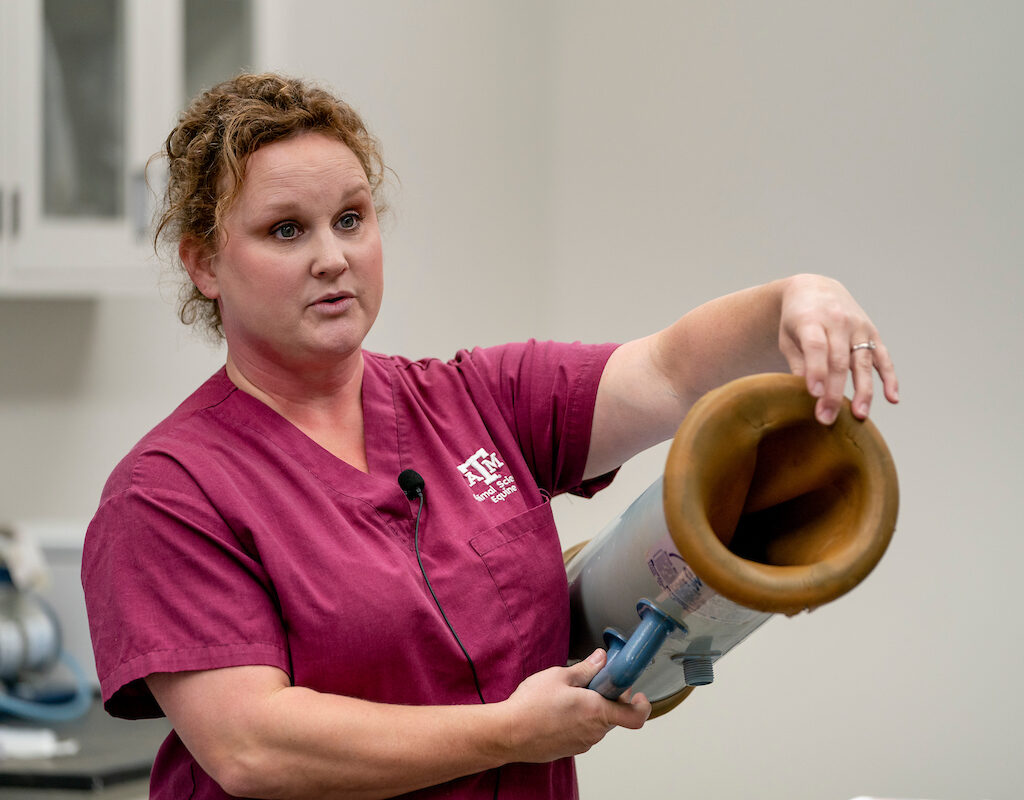Equine Reproductive Management Short Course
- Type
- Program

Topics:
Overview
Contact
7802 Turkey Creek Rd, College Station, TX 77845
The Texas A&M Equine Reproductive Management Short Course is designed for owners and breeding managers who want to learn the most efficient methods for ensuring program breeding success. The three-day course includes include classroom sessions on the anatomy and physiology of the mare and stallion, control of the estrous cycle, gestation and foaling, feeding the broodmare and young horse, and estrous cycle manipulation of mares. There are hands-on laboratory activities on a variety of equine reproductive topics as well as a broad range of topics useful to horse owners in any segment of the breeding industry.
Participation is limited to 12 individuals in order to ensure adequate time and animals for everyone to develop their skills. The registration fee includes lectures and laboratory sessions, lunch and refreshments each day, written materials, and a certificate of course completion.
More choices in Horses
- Course
This course is designed for youth and collegiate horse judging team members, their coaches, and anyone interested in learning more about horse judging. Learning objectives include understanding the rules for each class, applying the judging guidelines to each class, and learning to articulate placings during oral reasons.
- Publication
This factsheet covers how to identify potential hyperinsulinema in horses and how to manage the condition.
- Publication
This manual explains how to evaluate horses in contests or as potential purchases.
Note: This is a paid downloadable publication. - Course
In this course, horse owners and managers will learn about important topics related to managing the broodmare and foal.
- Course
Get everything you need for the Equine Reproductive Management Short Course and the Mare and Foal Workshop in this bundle!
- Course
Gain exclusive full access to the recordings from all three days of the 2021 short course! The Texas A&M Equine Reproductive Management Short Course is designed for owners and breeding managers who want to learn the most efficient methods for ensuring the success of their breeding programs.
